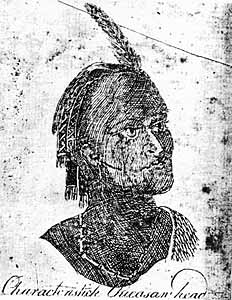This module is for Grades: 6-8 Welcome
The treatment of Native Americans by early American settlers and leaders is a thought-provoking topic. From the colonial era through the 19th century, Native Americans and white settlers struggled to forge lasting relations and live amongst their different cultures. The economic motives of the two sides sometimes benefitted one another, while at other times they competed for trade and resources. As the United States rapidly expanded westward during the 19th century, the U.S. government was confronted with the challenge of balancing the sovereignty of Native American nations and settlers hungry for living space and wealth. This challenge was intensified by the inherent racism of many American settlers, including leaders, who promoted the idea of white superiority over Native American societies who were treated as inferior.
The U.S. government embarked on an effort to sign agreements and treaties with organized Native American nations. Unfortunately, cultural barriers and racist attitudes produced treaties that abused Native American rights. The early 19th century presented new tests for relations between the U.S. government and Native Americans.
Note: In this module, the term Native Americans is used, however, when reading both primary and secondary sources, including excerpts in the module, Native Americans were referred to as Indians.
Focus Standard:
RH.6-8.6 - Identify aspects of a text that reveal an author’s point of view or purpose (e.g., loaded language, inclusion or avoidance of particular facts).
Skill:
Author’s Purpose or Point of View
Module Objectives
By the end of this module, you will be able to:
- Explain how an author uses language and information to convey a particular message to an audience.
- Examine the U.S. government’s 19th century Native American policy.









